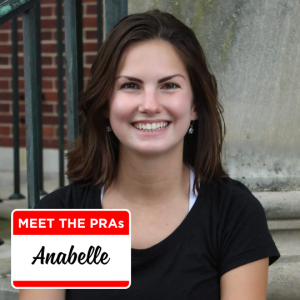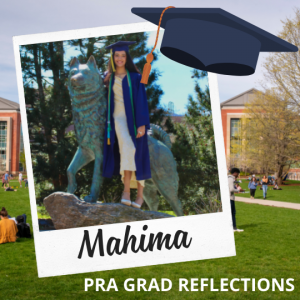Meet Ayushi Patel ’23, an OUR Peer Research Ambassador (PRA) majoring in Molecular & Cell Biology and minoring in English.
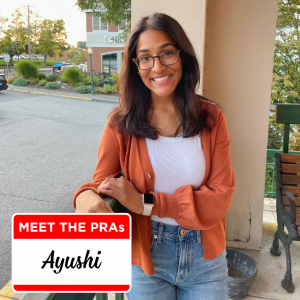 What is the focus of your research?
What is the focus of your research?
My main research focus is based in genetics and science in general. Right now, I’m working with Drosophila melanogaster to understand how female meiosis and these additional B chromosomes are passed down through generations, and the implications this has, in the Hanlon Laboratory. I’ll be working on my senior honors thesis in the laboratory as well.
Previously, I worked with the Korey Stringer Institute to understand how high school heat policies affect the students within those schools, Dr. Kent Holsinger’s lab in EEB as a research assistant, and most recently at Hartford Hospital to analyze patients with overactive bladder and learn which treatments worked most effectively under Dr. Tulikangas.
Why did you get involved in research?
I initially got involved in research to check off a box for myself, and just to say that I was a part of a lab. I knew research would be interesting, but didn’t realize how much I would love it. Through the last three years, I realized there’s much more to research than meets the eye. At first, everything seemed to make no sense and I was overwhelmed. As I began to do research within my major, and tying the things I was doing every day to information I had learned in classes, the pieces came together. I learned that research is a unique way to make a connection to the things we learn in school and help broaden your understanding of complicated subjects. Now, I just can’t imagine not being involved in some type of research and trying to answer a large-picture question. Continue reading →
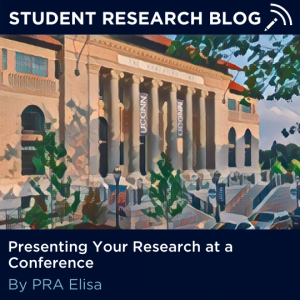 An integral part of the research process comes near the end: presenting and sharing your work with various audiences. The sharing process is the culmination of the time spent, words written and edited, and knowledge acquired throughout the duration of your research project and can be a very rewarding experience. It can also be one of the more anxiety-inducing aspects of research, especially if it may be one of the first times you are sharing your work with others. In this blog post, I’ll be sharing my experience presenting at my first conference in Ireland this summer, and tips that I found were helpful in doing so! Continue reading
An integral part of the research process comes near the end: presenting and sharing your work with various audiences. The sharing process is the culmination of the time spent, words written and edited, and knowledge acquired throughout the duration of your research project and can be a very rewarding experience. It can also be one of the more anxiety-inducing aspects of research, especially if it may be one of the first times you are sharing your work with others. In this blog post, I’ll be sharing my experience presenting at my first conference in Ireland this summer, and tips that I found were helpful in doing so! Continue reading 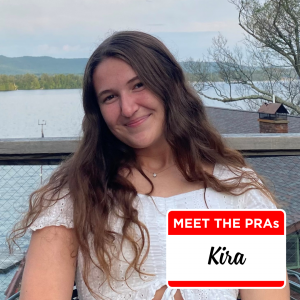
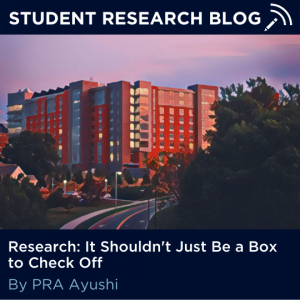
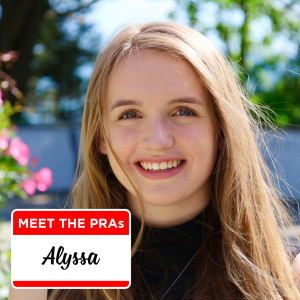
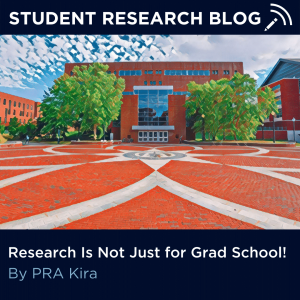

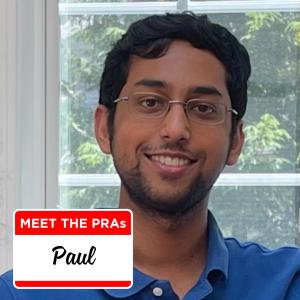
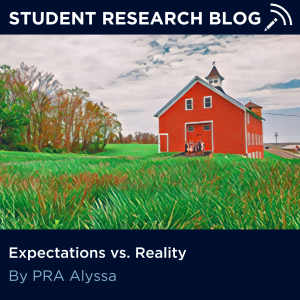 By Alyssa Daniels, Peer Research Ambassador
By Alyssa Daniels, Peer Research Ambassador